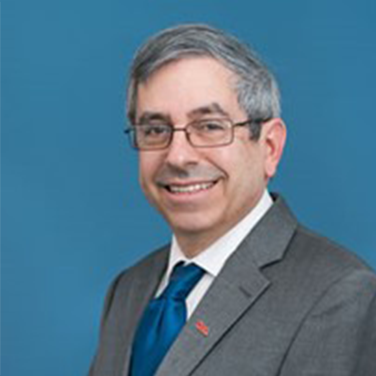
Dr. Mark J. Lewis
Executive Director
Rocket Propulsion 101 with Dr. Mark J. Lewis
Dr. Mark J. Lewis is the Executive Director of NDIA’s Emerging Technologies Institute (NDIA ETI), a non-partisan institute focused on technologies that are critical to the future of national defense. ETI provides research and analyses to inform the development and integration of emerging technologies into the defense industrial base.
Prior to this position, Dr. Lewis was the Director of Defense Research & Engineering in the Department of Defense (DoD), overseeing technology modernization for all Services and DoD Agencies, as well as the acting Deputy Under Secretary of Defense for Research & Engineering. In that role, he was the Pentagon’s senior-most scientist, managing a $17B budget that included DARPA, the Missile Defense Agency, the Defense Innovation Unit, the Space Development Agency, Federally Funded Research and Development Centers (FFRDC), and the Department’s basic and applied research portfolio.
From 2012 to 2019, Dr. Lewis was the Director of the Science and Technology Policy Institute, an FFRDC that supported the Executive Office of the President and other Executive Branch agencies in the formulation of national science and technology policy. Dr. Lewis is a professor emeritus at the University of Maryland, where he served as the Willis Young, Jr., Professor and Chair of the Department of Aerospace Engineering until 2012. A faculty member at Maryland for 25 years, Dr. Lewis taught and conducted basic and applied research in the fields of hypersonic aerodynamics, advanced propulsion, and space vehicle design and optimization. Best known for his work in hypersonics, Dr. Lewis’s research has spanned the aerospace flight spectrum from the analysis of conventional jet engines to entry into planetary atmospheres. From 2004 to 2008, Dr. Lewis was the Chief Scientist of the U.S. Air Force, the principal scientific adviser to the Chief of Staff and Secretary of the Air Force. As the longest-serving Chief Scientist in Air Force history, his primary areas of focus included hypersonics, space launch, energy, sustainment, advanced propulsion, basic research, and workforce development. From 2010 to 2011, he was President of the American Institute of Aeronautics and Astronautics.
Dr. Lewis attended the Massachusetts Institute of Technology, where he received his Bachelor of Science in Aeronautics and Astronautics, Bachelor of Science in Earth and Planetary Science (1984), and Master of Science (1985) and Doctor of Science (1988) in Aeronautics and Astronautics. He is the author of more than 320 publications and has been an adviser to more than 60 graduate students. In addition, he has served on various boards for NASA and DoD, including two terms on the Air Force Scientific Advisory Board.
A recipient of the USAF Exemplary, Meritorious, and Exceptional Civilian Service Awards, and of the Secretary of Defense Outstanding Public Service Award, Dr. Lewis was also the 1994 AIAA National Capital Young Scientist/Engineer of the Year; received the IECEC/AIAA Lifetime Achievement Award, the AIAA Dryden Lectureship Award, and the AFA Theodore von Karman Award; and is an Aviation Week and Space Technology Laureate. He is a member of the International Academy of Astronautics, a Fellow of the American Society of Mechanical Engineers, a Fellow of the Royal Aeronautical Society, and an Honorary Fellow of the American Institute of Aeronautics and Astronautics.
